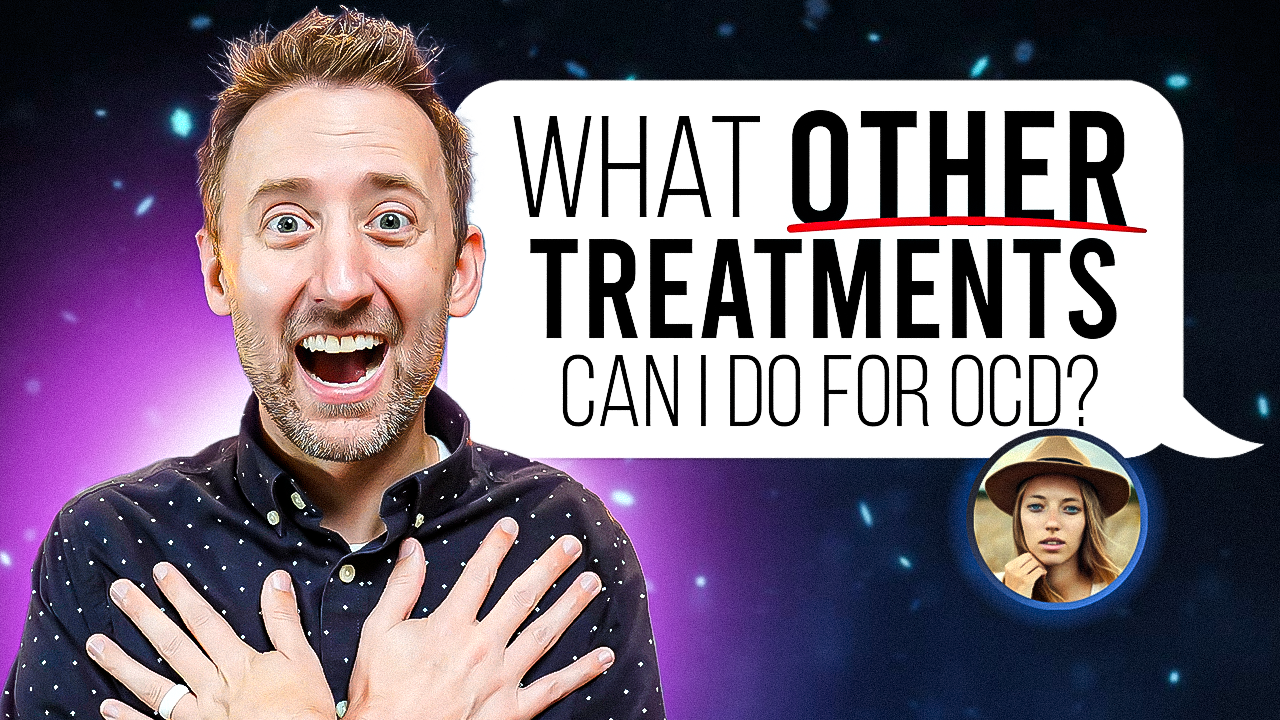5 types of OCD and how to do treatment
Mar 26, 2025
5 Hidden OCD Types and How to Treat Them
OCD isn't just about germs and straight lines. It's a shape-shifter, taking on forms that most people never see coming. Today, we're going to expose five of these hidden OCD types that can wreak havoc on a person's life. But here's the good news: I don't like to just talk about it. I want to share the tools to help you kick OCD to the curb. Once you know what you're dealing with, you can fight back. I walk you through specific strategies for each type, so you can start taking control. Ready to uncover the OCD types they don't teach you about in school? Imagine your mind constantly questioning if you're even real. That's the daily reality for people with existential OCD. It's not casual pondering about life's big questions. It's an all-consuming, anxiety-driven obsession that can paralyze you. Sarah, a college student, finds herself unable to focus on her studies. Instead, she spends hours each day frantically researching the nature of reality. She can't shake the fear that nothing around her is real or that life has no purpose. This obsession is wrecking her grades, sleep, and relationships. Exposure and Response Prevention (ERP) is the key. Instead of trying to answer impossible questions, lean into the uncertainty. Write out your scariest existential fears and read them daily. Use "maybe, maybe not" to embrace uncertainty. For example: "Am I in the matrix? Maybe, maybe not." The goal is to teach your brain that uncertainty is okay. Pure O is all about intrusive thoughts without visible compulsions. While traditional OCD involves outward rituals, Pure O involves mental compulsions like ruminating, analyzing, or pushing thoughts away. Imaginational exposure is a powerful tool. Write out detailed scripts of your worst fears coming true and read them repeatedly without neutralizing the anxiety. Allow intrusive thoughts to exist without trying to figure them out or push them away. Smile at them, welcome them, and commit to never solving the "puzzle" your brain presents. ROCD manifests as obsessive doubts about your relationship or partner. You might question your feelings, your partner's qualities, or whether your relationship is "right." These doubts become all-consuming and can strain or even end relationships. ERP for ROCD involves facing fears head-on. Write out your worst relationship fears and read them daily. Look at photos of "perfect" couples without comparing. Commit to staying in the relationship unless there are clear red flags, and answer every doubt with "maybe, maybe not." Sensorimotor OCD focuses on bodily sensations like breathing, blinking, or swallowing. These once-automatic processes become a source of constant anxiety. ERP involves leaning into the sensation instead of avoiding it. For example, focus intensely on your breathing without trying to change it. Embrace the idea that you might notice these sensations forever. By changing your relationship with the sensations, your brain learns to let them be. Tourettic OCD combines features of OCD and Tourette's Syndrome. It involves movement-based compulsions like tapping or jerking motions, often driven by anxiety or magical thinking. ERP and habit reversal training work well together. Resist the urge to perform the compulsion for gradually increasing periods. Embrace the feelings and thoughts without giving in to the compulsions. OCD can feel overwhelming, but with the right tools, recovery is possible. Whether you're working with a therapist or exploring resources like my Master Your OCD online course, you can take control of your life again. Trust the process and embrace uncertainty—it's the key to breaking free from OCD.Unveiling the Hidden Forms of OCD
1. Existential OCD
What is Existential OCD?
How It Affects Life
Treating Existential OCD
2. Pure O (Purely Obsessional OCD)
What is Pure O?
How to Treat Pure O
3. Relationship OCD (ROCD)
How ROCD Disrupts Relationships
Treating ROCD
4. Sensorimotor OCD
When Your Body Becomes the Obsession
Treatment Strategies
5. Tourettic OCD
What is Tourettic OCD?
Treatment for Tourettic OCD
Recovery is Possible















